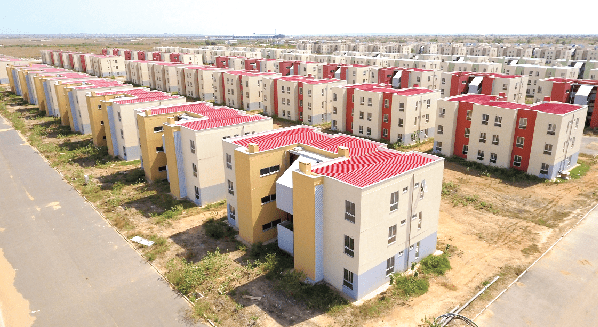2024 Revised Ghana Housing Profile, launched by the Ministry of Works and Housing in collaboration with UN Habitat and the United Nations Office for Project Services (UNOPS), reveals that only 1% of Ghanaian households can afford decent homes as defined by the Ministry.
A “decent home,” according to the Ministry, must provide adequate space for all residents, ensure security against forced eviction, be free from hazards, and offer access to essential services like water, electricity, and sanitation. Additionally, it must be located in a safe environment.
The housing profile, which was compiled using data from credible sources like the Ghana Statistical Service (GSS), highlights critical issues facing the housing sector in Ghana while proposing potential solutions.
At the launch event on Wednesday, November 27, 2024, at the Alisa Hotel in Accra, Kojo Oppong Nkrumah, the Minister for Works and Housing, expressed optimism that the findings would shape the country’s development agenda and drive meaningful reforms in the housing sector.
He stated, “These contributions form a crucial body of knowledge in housing, which should influence the interventions we roll out. Let this document serve as a blueprint for coordinated action, guiding us toward a housing sector that meets the aspirations of every Ghanaian.”
During the launch event at the Alisa Hotel in Accra, the lead author and consultant of the revised profile, Professor of urban planning and current head of the Department of Planning at the Kwame Nkrumah University of Science & Technology, Clifford Amoako, expanded key issues from the report among which are.
1% of Ghanaian households can afford decent homes that are provided by the formal sector, that is, real estate developers.
11% of expensive houses procured by people have been left largely empty.
The housing deficit decreased from 2.8 million to 1.8 million over a period of 10 years, reflecting a reduction of 1 million units.

